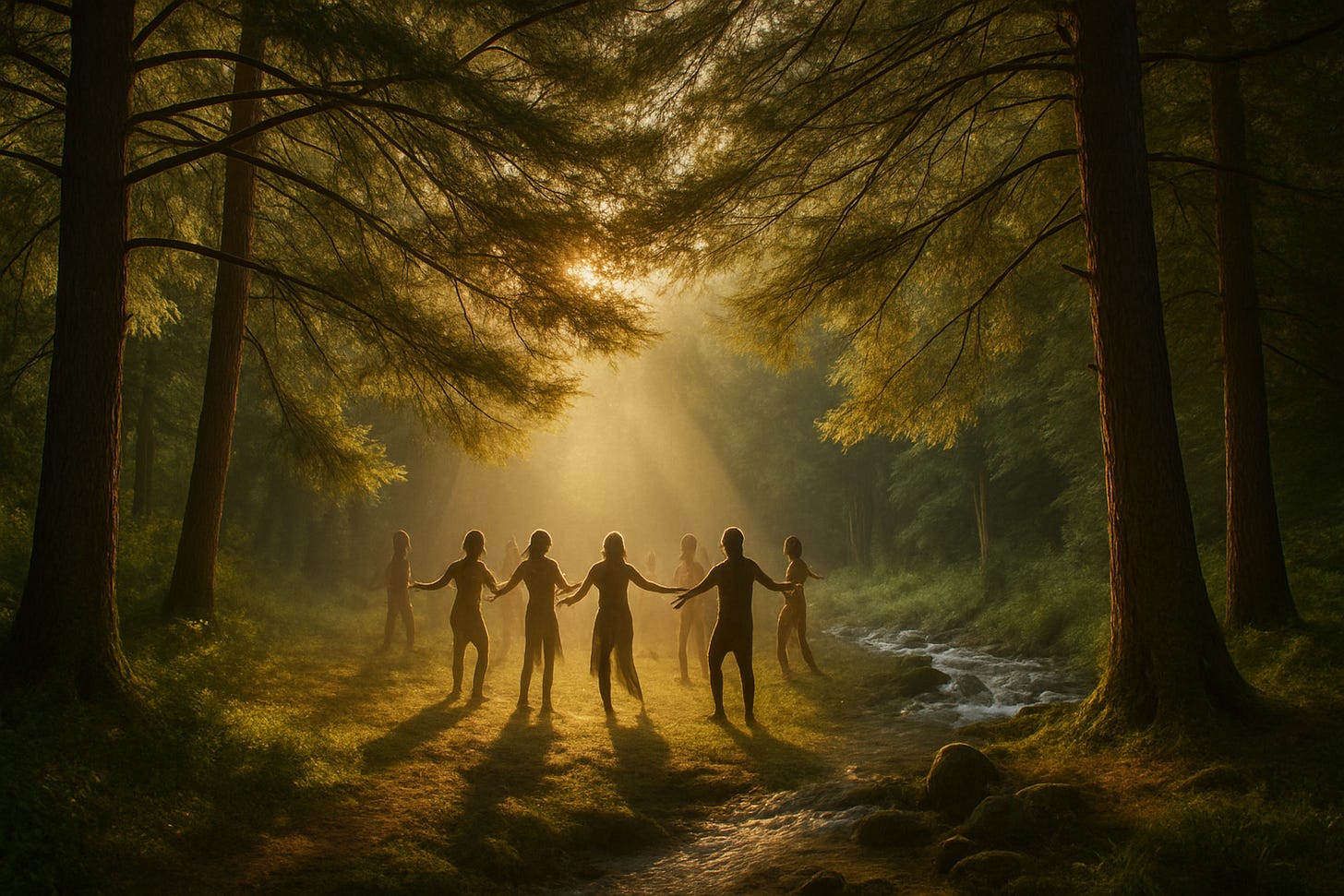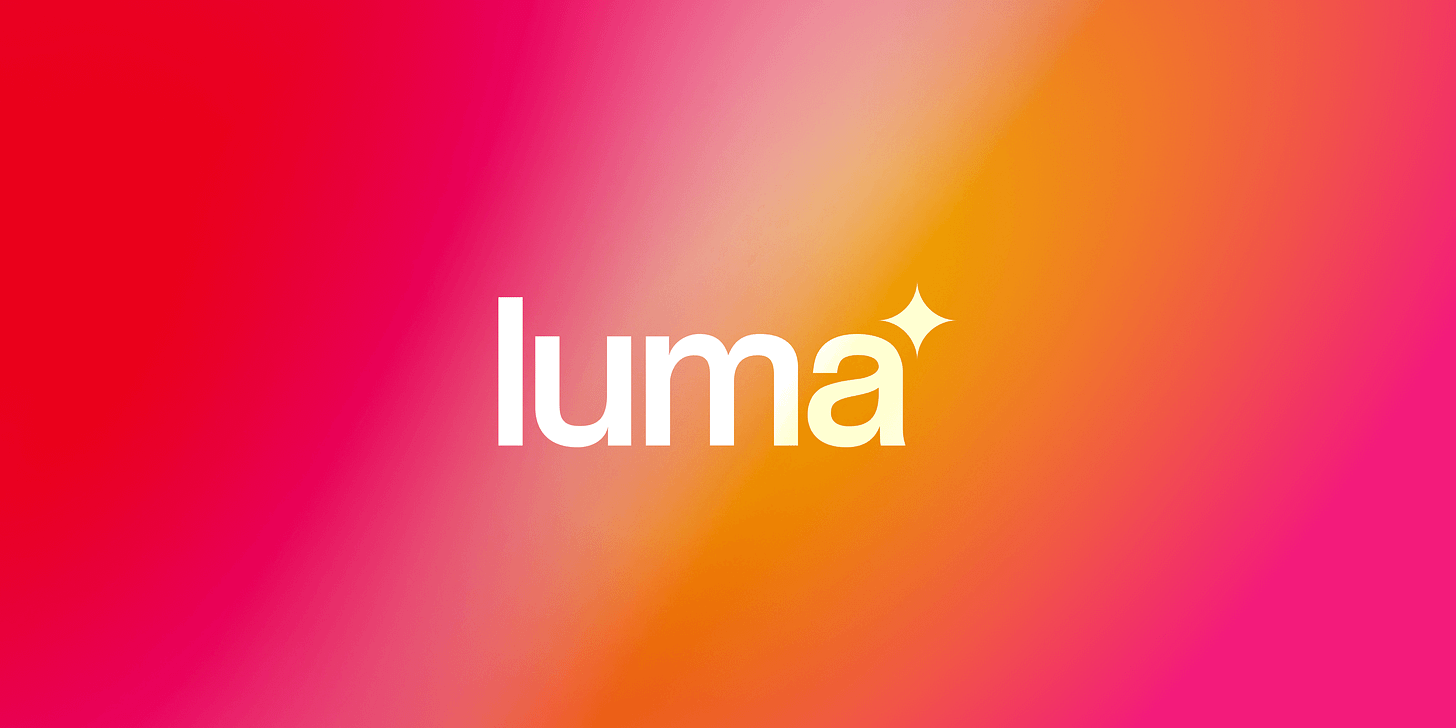Designing Decentralized Communities. Part 1: Event Calendars
Decentralized communities are rooted, resilient, and relational. They grow like forests, not feeds.
"Centralized platforms were built for scale, for hijacking attention, serving a monetisation agenda. Decentralized communities are slower, yes — but they’re rooted, resilient, and relational. They grow like forests, not feeds."
What would our communities look like if we actually owned them?
It’s a question I return to often, not out of idealism, but because it’s the only question that matters when you’re trying to build something that lasts.
Ownership is the foundation. Without it, you’re just squatting on someone else’s infrastructure, subject to whatever rules they decide to change next week.
And nowhere is this more visible than in how we gather — how we host events, invite others, and hold space together.
Why Community Events matter
If you’ve ever tried to bring people together — in a room, on a call, in a forest — you know how much depends on clarity and follow-through.
For events to succeed, participants need to:
Discover the offering without friction
Register in a way that feels smooth and intentional
Add it to their personal calendar with a single click
Receive gentle, well-timed reminders
Feel welcomed and prepared when the moment arrives
These are not extravagant features. They’re foundational.
They ensure presence. They enable commitment.
They create the rhythm that communities can grow around.
And events aren’t just operational necessities. They are the heartbeat of any community.
Look closely at the oldest, most enduring social structures in human history — from temples and mosques to churches and village halls — and one thing becomes immediately clear: they all gather people, regularly, in shared time and space. Not just to inform, but to commune. To witness and be witnessed. To participate.
Religions didn’t spread because of messaging.
They spread because people kept showing up on Sundays.
Because there was singing, silence, ritual, and repetition.
Because someone held the door open, and someone else made tea.
In the same way, modern creators and communities still rely on events, not as promotional tools, but as ritual infrastructure.
Whether it's a workshop, a webinar, or a potluck, people crave shared moments that anchor meaning.
At Respira, I’ve been building a modular community operating system — not a one-size-fits-all platform, but a flexible constellation of tools that honor the creator at the center.
For events, Luma has become the spine.
Luma empowers each host to manage their own calendar, handle payments (if needed), nurture an audience of subscribers and past attendees, customize registration flows, and grow their own list — all while choosing whether or not to post their events to shared community calendars like the ones below.
Disclaimer: Neither I nor Respira is affiliated in any way with Luma. I just love the platform and use it where I need.
In Romania, I’m seeding a network of local calendars designed to support grassroots event culture. If you're hosting something in your city — a retreat, a workshop, a film night, a community ritual — you can submit it to:
These aren’t passive listings. They’re curated invitations to local culture and connection — open to facilitators, artists, teachers, and hosts that resonate.
Here’s how to add your event to one of these community calendars in under 1 minute:
Would you like to help me grow this?
Called Good Vibes Events, these city/regional/national community calendars can easily become a community. It needs a landingpage, a WhatsApp Community and stewards. Are you one of them? Let me know in the comments.
These are Community Event Calendars (don’t submit your events there 🤓 ):
lu.ma/suuna – SUUNA community
lu.ma/2performant – community of businessleague.com ecosystem BusinessLeague Newsroom
lu.ma/paua – PAUA NEWS community
Each calendar holds a distinct field. Events can live on multiple calendars — local, thematic, private — and creators always remain in control.
Choosing better tools is only half the work. The real task is designing systems (architecting attention) that help people show up — again and again.
Luma Facebook Events Importer
(for lack of a better name)
Many communities still rely on Facebook Events — not because they love it, but because migrating is hard. To ease that transition, I’m actively working an open-source importer that transfers Facebook events into Luma with minimal effort. Past and future events, preserved. Infrastructure reclaimed.
The integration is already in development.
Would you like to contribute to the GitHub repo?
If you want to support its development, create a free Manus account — each signup brings me 500 developer credits to push the project forward. Or subscribe to the paid version of this Substack.
Next up in this series, in no particular order:
Nurturing an email audience,
Monetize,
Your Private Community Space inside a larger community
where I’ll unpack the best use cases of platforms for an intentional, algorithm-free alternative in content and audience nurturing.
But for now, a reminder:
Events are not extras. They are the meeting points of transformation.
People don’t gather because you promoted.
They gather because something inside them recognizes a rhythm.
Our role is to design that rhythm well, and to protect the spaces where it can unfold.
Let’s keep building.
And traveling!
Designing Decentralized Communities Part II: TRAVEL
“Travel is fatal to prejudice, bigotry, and narrow-mindedness… Broad, wholesome, charitable views of men and things cannot be acquired by vegetating in one little corner of the earth all one’s lifetime.” — Mark Twain, The Innocents Abroad





